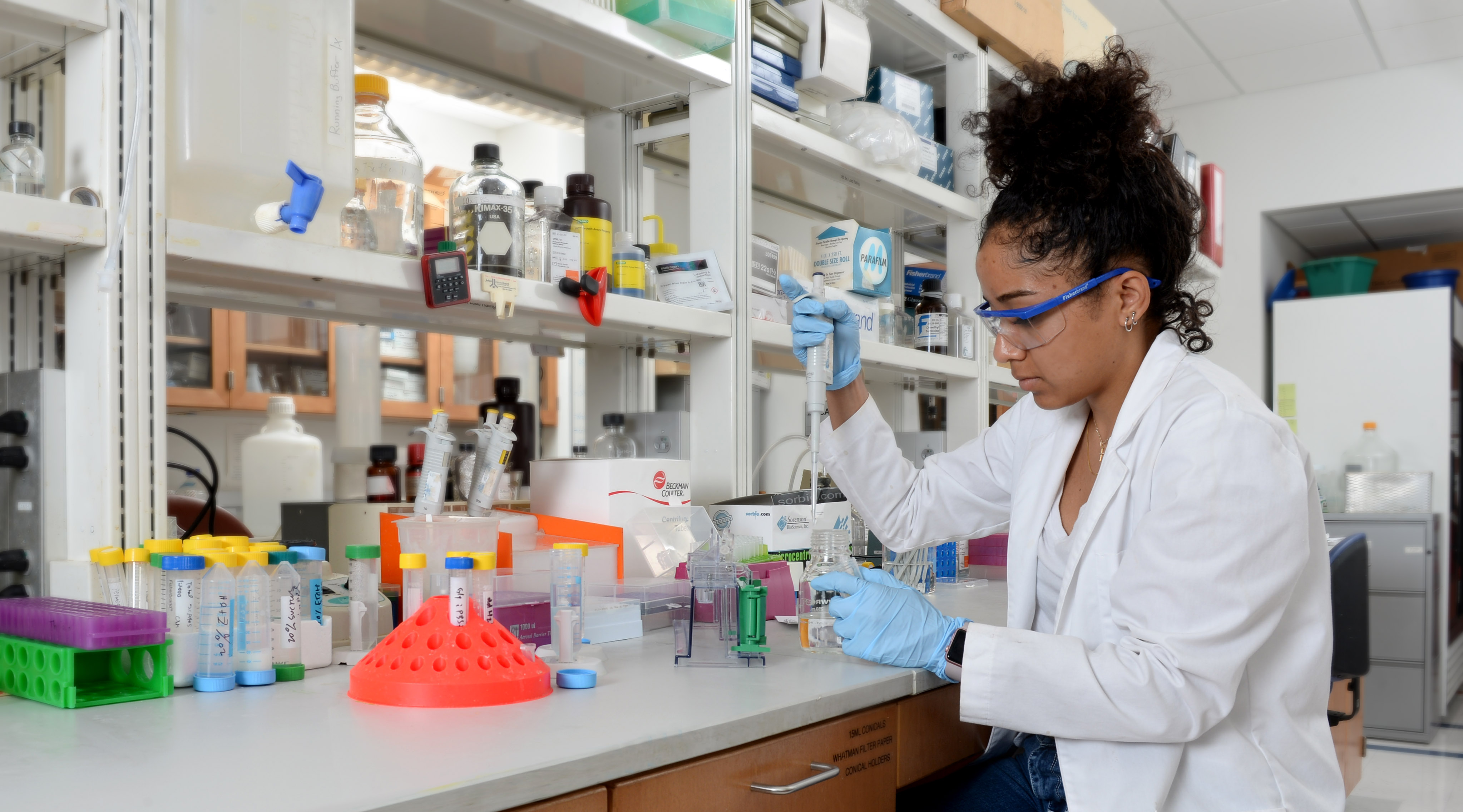
The University of Kansas Medical Center received a five-year, $18.9 million grant from the National Institute of General Medical Sciences of the National Institutes of Health to provide ongoing funding to a program aimed at improving and expanding cell and developmental biology research in Kansas.
Kansas Institutional Development Award Network of Biomedical Research Excellence (K-INBRE) is a multidisciplinary research network of 10 graduate and undergraduate institutions in Kansas and Oklahoma working to enhance biomedical research in Kansas through faculty development, retention and infrastructure, as well as to encourage undergraduate students to pursue careers in biomedical research.
One of the largest biomedical research grants received in Kansas, K-INBRE is aimed at positively impacting the biomedical sciences in Kansas, be that through faculty research, student development or educational opportunities. Since it was initially funded in 2001, the research program will have brought more than $82 million into the state through 2023, the end of the current award renewal.
“The K-INBRE program has had a substantial impact on building biomedical research infrastructure across the state of Kansas,” said Douglas Wright, Ph.D., program director and professor of anatomy and cell biology at KU Medical Center. “The network of universities across Kansas has resulted in a unified effort to build research programs, train our students, and build a strong workforce in biomedical research in Kansas.”
The grant will continue to fund multiple initiatives, including new faculty, postdoctoral fellowship and undergraduate research projects; bioinformatics research; and undergraduate student professional development and mentorship activities. The funding also will support translational research partnerships between clinicians and basic scientists as well as provide bridging funds for research applications that are near securing national funding.
With recent renewals of the award, the initiative has expanded its impact in noteworthy ways such as the addition of an entrepreneurial scholar option for undergraduate students with an interest in commercializing their research and a community-based research scholar option for students at one of K-INBRE’s participating undergraduate institutions, Haskell Indian Nation University, for students to conduct health related research on their home tribal lands during the summer. Additionally, the program has continued to develop partnerships with existing initiatives that extend the pipeline of students advancing from high school all the way through to careers in biomedical research as well as to integrate the bioinformatics core with curricula to bolster pipeline development.
“We continue to recruit strong researchers to Kansas, support trainees and faculty in the early stages of their careers, build bridges between clinical and basic research, and provide education and opportunities for students in biomedical research,” Wright said. “As we move forward during the next funding period, the Kansas INBRE will expand its reach to high school students, continue to promote basic and clinical interactions for translation of research ideas, and ensure that institutions across the state of Kansas can continue to build research efforts and be competitive for funding from the National Institutes of Health.”
K-INBRE is supported by the NIGMS’s Institutional Development Award program. IDeA assists researchers in 23 states and Puerto Rico that historically have been underfunded by the NIH. For more program information, visit www.k-inbre.org.